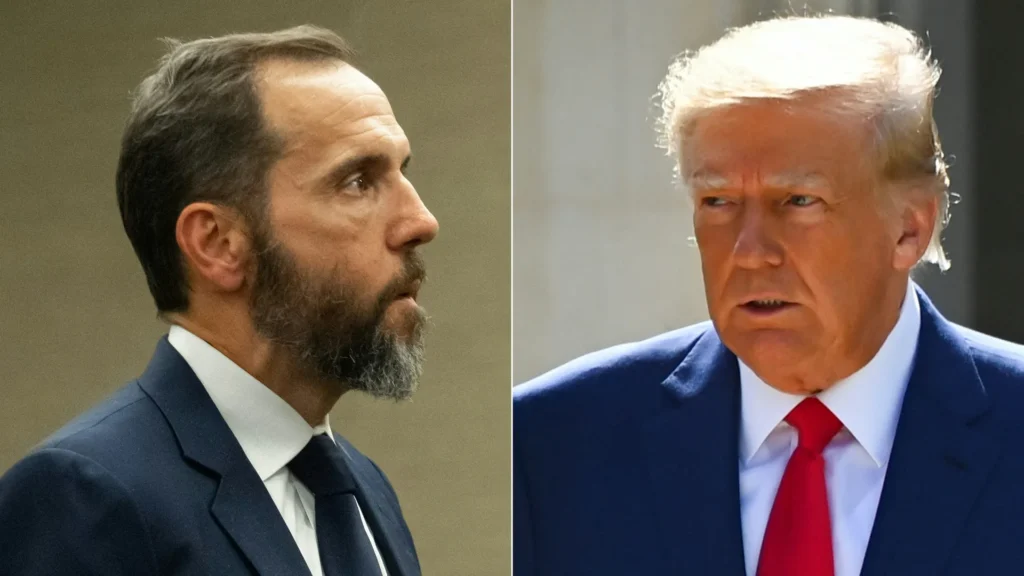Special Counsel Jack Smith has filed a request to drop all charges against President-elect Donald Trump related to his investigation into the January 6 U.S. Capitol breach, Fox News Digital has learned. The dismissal request must be approved by Judge Tanya Chutkan before the case can be officially closed. Following Trump’s victory in the 2024 presidential election earlier this month, Smith indicated his intention to wind down the case. The filing was posted to the Department of Justice docket on Monday afternoon.
Smith had previously submitted a motion to vacate all deadlines in the 2020 election interference case against Trump in Washington, D.C. While this move was widely anticipated, it fell short of dismissing the case entirely. Smith indicated that his team would provide an updated report on the case’s official status on December 2. Trump pleaded not guilty to all charges and appealed to the U.S. Supreme Court, citing presidential immunity.
The high court determined that Trump was immune from prosecution for actions taken as part of his official duties as president, prompting Smith to file a new indictment. Trump also pleaded not guilty to these updated charges. Meanwhile, Trump’s attorneys have been pushing to dismiss the election interference charges in Washington, D.C., arguing that Smith’s appointment was unlawful. U.S. District Judge Aileen Cannon in Florida tossed Trump’s classified documents case earlier this year on grounds that Smith was improperly appointed.
“The American People re-elected President Trump with an overwhelming mandate to Make America Great Again. Today’s decision by the DOJ ends the unconstitutional federal cases against President Trump, and is a major victory for the rule of law,” Trump spokesman and incoming White House communications director Steven Cheung said in a statement. “The American People and President Trump want an immediate end to the political weaponization of our justice system and we look forward to uniting our country.”
Earlier this month, Smith made a significant concession in the Florida case, which ignited speculation about the future direction of one of the country’s most closely watched legal battles. The move indicated a recalibration of the Justice Department’s strategy as it navigates the unprecedented legal challenges surrounding a former and future president.
In a filing submitted Wednesday to the 11th U.S. Circuit Court of Appeals, Smith referenced the recent election results as a key factor. He noted that Trump is expected to be certified as President-elect on January 6, 2025, and inaugurated on January 20, 2025. Given these developments, Smith requested that the court delay the appeal until December 2, 2024, to give the government time to assess the situation and determine the best course of action in line with Department of Justice policy. “As a result of the election held on November 5, 2024, one of the defendants in this case, Donald J. Trump, is expected to be certified as President-elect on January 6, 2025, and inaugurated on January 20, 2025,” Smith wrote.
“The Government respectfully requests that the Court hold this appeal in abeyance— and stay the deadline for the Government’s reply brief, which is currently due on November 15, 2024—until December 2, 2024, to afford the Government time to assess this unprecedented circumstance and determine the appropriate course going forward consistent with Department of Justice policy.”
“If the Court grants the abeyance, the Government will inform the Court of the result of its deliberations—and, if appropriate, file its reply brief—no later than December 2, 2024. The Government has consulted with counsel for the defendants, who do not object to this request,” the filing read. Smith’s request to pause the appeal aligns with the Justice Department’s longstanding policy of not prosecuting sitting presidents. This policy is based on the principle that criminal proceedings against a sitting president could disrupt the executive branch’s ability to fulfill its constitutionally mandated duties.



